Q Lately I have noticed that many freight cars, including tank cars, boxcars, and hoppers, have five to seven vertical reflective strips on their sides. What’s the deal? — Frank C. Darling Jr., Wolcott, N.Y. A The objective is better nighttime visibility. In January 2005, the Federal Railroad Administration issued “The Final Rule on Reflectorization […]
Type of Train: Freight
Large scale, gauge-1 logging disconnects with logs
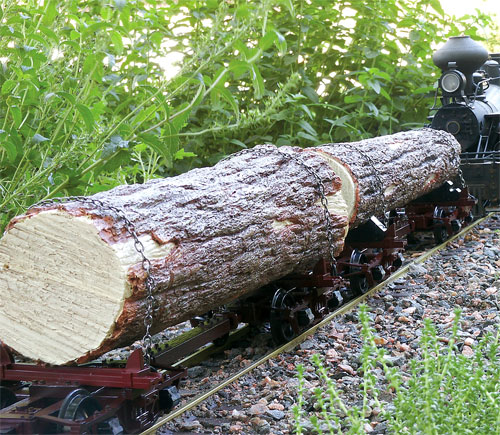
Kevin Strong Large scale, gauge-1 logging disconnects with logsLGB of America6444 Nancy Ridge DrSan Diego, CA 92121Check your local dealer for pricing and availabilityWeb site: www.lgboa.com Injection-molded-plastic logging disconnects with plastic logs; two pair of disconnects and two different logs of roughly the same diameter in each box; hook-and-loop couplers installed; link-and-pin couplers supplied, to […]
The challenge and promise of intermodal
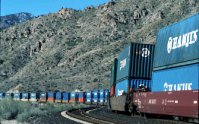
International steamship companies like Hanjin Shipping contract with U.S. railroads to move containers from ocean ports to inland terminals, and to ferry containers moving between Asia and Europe across the North American continent. Howard Ande Larry Gross is Senior Vice President – Marketing for trailer manufacturer Wabash National Corp., provider of the RoadRailer intermodal system […]
Ask Trains from August 2006
Q What does the name “Soo Line” mean? Is it an acronym, an abbreviation, or something else? I’ve asked many rail enthusiasts and gotten many different answers. – Reed Newlin, Maryville, Ill. A The Soo Line got its nickname from its original full name, the Minneapolis, St. Paul & Sault Ste. Marie. “Sault,” pronounced “Soo,” […]
Railway Express Agency
One enduring symbol of railroading’s past is the red-and-white diamond herald of the Railway Express Agency. Today one finds reminders of REA only at museums or old depots, but it once was a major element of the American scene – the FedEx of its day. Formation of the REA Express service is the prompt and […]
Canadian National merger family tree

Canadian National Canadian National Railways was incorporated June 6, 1919, to operate several carriers that had come under governmental control owing to financial problems: Intercolonial (1913); National Transcontinental (1915); Canadian Northern (1918); Grand Trunk Pacific (1920); and Grand Trunk (1920). The Grand Trunk name survived on the U.S. portion of the Montreal-Portland (Maine) line until […]
Kansas City Southern merger family tree
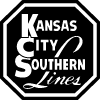
Kansas City Southern Railway Kansas City Southern, which began as the Kansas City, Pittsburg & Gulf in 1890, was completed to the Gulf of Mexico in 1897. The KCS name dates from a turn-of-the-century reorganization in which founder Arthur Stilwell was ousted. KCS acquired Louisiana & Arkansas in 1939, and remained a stable mid-sized system […]
Mexico rail mergers 1960-1987
Operational organization of Mexican railroads from 1960 to 1987 Ferrocarriles Nacionales de México (NdeM) División de Cárdenas División del Centro, Subdivisión de Aguascalientes División del Centro, Subdivisión de Durango División del Golfo División de Guadalajara División de Jalapa División de Mérida (ex-FC Unidos del Sureste) División de Mexicano (ex-FC Mexicano) División de México, Subdivisión de […]
Pan Am Railways merger family tree
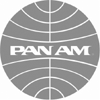
Pan Am Railways In March of 2006, Guilford Transportation Industries’ rail properties were rebranded under the name Pan Am Railways, sharing the trade name of the well-known airline, which GTI had purchased out of bankruptcy in 1998 and continues to operate under the Pan Am brand. Guilford Rail System Guilford Transportation Industries dates from 1977, […]
BNSF Railway
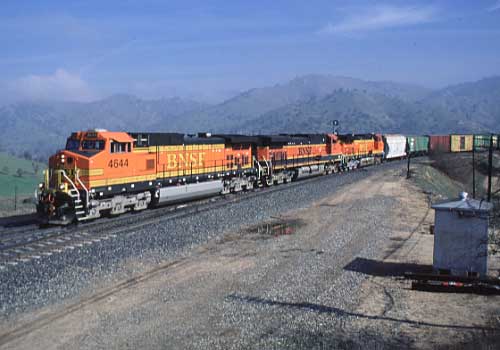
A westbound BNSF freight train rounds the Tehachapi Loop in Southern California. Howard Ande The product of the Sept. 22, 1995 merger of the parent companies of the Atchison, Topeka & Santa Fe Railway and the Burlington Northern Railroad, BNSF is one of the west’s two giant railroad systems. Its 32,000-mile network (24,000 owned route […]
NORAC: Northeast Operating Rules Advisory Committee
Modern railroad dispatching systems and movement controls have evolved by trial and error into a two-tier system of centralized dispatching and trackside signaling. But while the physical means of controlling traffic converged on a few types of lineside signal equipment – semaphores, position-lights, searchlights, etc. – the colors and arrangements (“aspects”) they presented, and the […]
